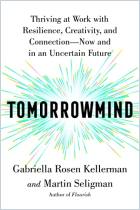Recommendation
The four authors of this dense but fascinating work offer varying perspectives on the human mind, drawing from philosophy, psychology and psychiatry. Together, Learned Optimism author Martin E. P. Seligman and professors Peter Railton, Roy F. Baumeister and Chandra Sripada argue that “prospection” – how people look toward the future – defines what it means to be human. They make an extended case integrating philosophical arguments with psychological studies in a larger biological or evolutionary context, and they illustrate their points with ample, interesting references to pop culture. The result is a worthwhile reflection on what it means to be a person. getAbstract recommends it to anyone interested in reflection and self-knowledge.
Summary
About the Authors
Martin E. P. Seligman is director of the Penn Positive Psychology Center and author of more than two dozen books, including Learned Optimism. Peter Railton is a distinguished professor of philosophy at the University of Michigan. Roy F. Baumeister is an eminent scholar and professor of psychology at Florida State University, and Chandra Sripada is an associate professor of philosophy and psychiatry at the University of Michigan.











Comment on this summary